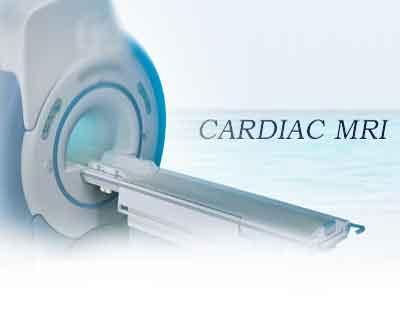- Home
- Editorial
- News
- Practice Guidelines
- Anesthesiology Guidelines
- Cancer Guidelines
- Cardiac Sciences Guidelines
- Critical Care Guidelines
- Dentistry Guidelines
- Dermatology Guidelines
- Diabetes and Endo Guidelines
- Diagnostics Guidelines
- ENT Guidelines
- Featured Practice Guidelines
- Gastroenterology Guidelines
- Geriatrics Guidelines
- Medicine Guidelines
- Nephrology Guidelines
- Neurosciences Guidelines
- Obs and Gynae Guidelines
- Ophthalmology Guidelines
- Orthopaedics Guidelines
- Paediatrics Guidelines
- Psychiatry Guidelines
- Pulmonology Guidelines
- Radiology Guidelines
- Surgery Guidelines
- Urology Guidelines
Cardiac MRI boosts detection rate of myocarditis by almost 5 folds, finds study

Cardiac Magnetic Resonance Imaging (MRI) also called CMR may offer a higher diagnostic speed for detection of myocarditis, suggests findings of the latest study published in the Swiss Medical Weekly. The study demonstrated that cardiac MRI led to an average 4.9-fold increase in the rate of myocarditis detection.
Myocarditis is an underdiagnosed cause of acute heart failure, sudden death, and chronic dilated cardiomyopathy. Myocarditis is a heterogeneous inflammatory heart disease which manifests itself through a variety of symptoms. Systematic work-up of patients with myocardial infarction and non-obstructive coronary artery disease (MINOCA) using cardiac magnetic resonance imaging (CMR) led to a more than six-fold increase in the detection rate of myocarditis. In this study, the investigators expanded their prior two-year analysis by including preceding and subsequent years.
The investigators performed a retrospective chart review of patients with angina-like symptoms and elevated high-sensitivity troponin T (TnT-hs ≥14 ng/l) but without significant coronary artery disease, from 2011 to 2017. Patients underwent CMR to test for myocarditis. From 2011 to 2015, only patients with elevated TnT-hs, no significant coronary artery disease and moderate to high clinical likelihood of suffering from myocarditis, underwent CMR. In 2016 and 2017, CMR images were obtained from all patients with MINOCA, independent of the clinical likelihood that patients were suffering from myocarditis.
Key findings of the study
- A total of 556 patients who underwent CMR qualified for inclusion in this study's analysis.
- From 2011 to 2015, 240 CMR examinations were performed, with the number increasing to 316 between 2016 and 2017.
- In total, myocarditis was diagnosed in 76 out of the 556 patients.
- Between 2011 and 2015, the detection rate of myocarditis was 12.7 per 100,000 hospitalizations and increased 4.9-fold, to 62.5 per 100,000 hospitalizations, between 2016 and 2017.
To conclude the study the authors wrote that "a novel diagnostic algorithm led to an average 4.9-fold increase in the rate of myocarditis detection in our hospital over the two subsequent years. This highlights that myocarditis continues to be underdiagnosed when CMR is not systematically used in patients with MINOCA."
For further details, click on the link

Disclaimer: This site is primarily intended for healthcare professionals. Any content/information on this website does not replace the advice of medical and/or health professionals and should not be construed as medical/diagnostic advice/endorsement or prescription. Use of this site is subject to our terms of use, privacy policy, advertisement policy. © 2020 Minerva Medical Treatment Pvt Ltd